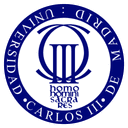This course is part of Introducción a la programación en Java.
This comprehensive Java programming course teaches you how to improve your code using fundamental data structures and efficient algorithms. You'll work with essential structures like lists, stacks, queues, and trees while learning algorithms for inserting, deleting, searching, and sorting information efficiently. The course emphasizes immediate feedback and a fun programming experience, helping you develop computational thinking skills applicable to everyday processes. Perfect for those looking to enhance their Java knowledge beyond basics, this course combines theoretical concepts with practical applications to build a solid foundation in computer science principles.
3
21,373 already enrolled
Instructors:
Spanish
Español
What you'll learn
Organize data in arrays and linked lists using primitive data types and classes Develop and use linear data structures like stacks and queues Define and use non-linear data structures such as trees Implement binary search trees and heaps with linked lists or arrays Apply efficient programming algorithms for searching and sorting data
Skills you'll gain
This course includes:
PreRecorded video
Graded assignments, exams
Access on Mobile, Tablet, Desktop
Limited Access access
Shareable certificate
Closed caption
Get a Completion Certificate
Share your certificate with prospective employers and your professional network on LinkedIn.
Created by
Provided by

Top companies offer this course to their employees
Top companies provide this course to enhance their employees' skills, ensuring they excel in handling complex projects and drive organizational success.





There are 5 modules in this course
This course covers essential concepts in Java programming with a focus on data structures and algorithms. Students will organize data using arrays and linked lists with primitive data types and classes. They'll develop and use linear data structures like stacks and queues implemented with linked lists or arrays. The course also teaches non-linear data structures such as trees, including binary search trees and heaps. Students will learn to implement efficient programming algorithms for searching and sorting data. The curriculum is structured around five main themes: linear data structures, stacks, queues, trees, and sorting algorithms, providing a comprehensive foundation in computational thinking and efficient programming techniques.
Estructuras de datos lineales
Module 1
Pilas
Module 2
Colas
Module 3
Árboles
Module 4
Ordenación
Module 5
Fee Structure
Individual course purchase is not available - to enroll in this course with a certificate, you need to purchase the complete Professional Certificate Course. For enrollment and detailed fee structure, visit the following: Introducción a la programación en Java
Payment options
Financial Aid
Instructors

3 Courses
Distinguished Leadership in Digital Education and Learning Innovation
Dr. Carlos Delgado Kloos serves as Full Professor of Telematics Engineering at Universidad Carlos III de Madrid, where he holds multiple leadership positions including Vice President for Strategy and Digital Education and Director of the UNESCO Chair on "Scalable Digital Education for All." His academic credentials include dual PhDs - one in Computer Science from the Technische Universität München and another in Telecommunications Engineering from the Universidad Politécnica de Madrid. His contributions to digital education include pioneering two MOOC trilogies on Introduction to Java Programming on edX that have reached nearly 500,000 registered learners. As coordinator of the eMadrid network and leader of the CertiDigital project, he drives innovation in digital education and micro-credentials. His research focuses on Technology-Enhanced Learning, with significant contributions to MOOCs, SPOCs, and learning analytics. His impact on education is evidenced through his 35-year teaching career, development of numerous digital learning initiatives, and coordination of international research projects such as MOOC-Maker, E-LANE, and SMARTLET. As the Spanish representative at IFIP's TC3 on Education and holder of the UNESCO Chair, he continues to shape the future of digital education through innovative teaching methodologies and technology integration.

2 Courses
Distinguished Leadership in Technology-Enhanced Learning and Computer Science Education
Dr. Carmen Fernández-Panadero serves as Associate Professor of Telematics Engineering at Universidad Carlos III de Madrid, where she specializes in Technology Enhanced Learning (TEL) and meaningful learning experiences. Her academic journey began with an MSc in Physical Science from Universidad Complutense de Madrid in 1996, followed by a PhD in Communications Technologies from Universidad Carlos III de Madrid in 2004. Her professional experience includes work at Andersen Consulting in 1997, where she focused on multimedia and Internet programming projects. Since 1999, she has been teaching at Universidad Carlos III de Madrid, where she has played a key role in Java programming education. Her research impact is evidenced by over 1,000 academic citations, focusing on developing innovative methodologies and artifacts for technology-enhanced learning environments. As a member of the Department of Telematics Engineering, she contributes to advancing the field of educational technology through research and practical applications in computer science education
Testimonials
Testimonials and success stories are a testament to the quality of this program and its impact on your career and learning journey. Be the first to help others make an informed decision by sharing your review of the course.
Frequently asked questions
Below are some of the most commonly asked questions about this course. We aim to provide clear and concise answers to help you better understand the course content, structure, and any other relevant information. If you have any additional questions or if your question is not listed here, please don't hesitate to reach out to our support team for further assistance.



